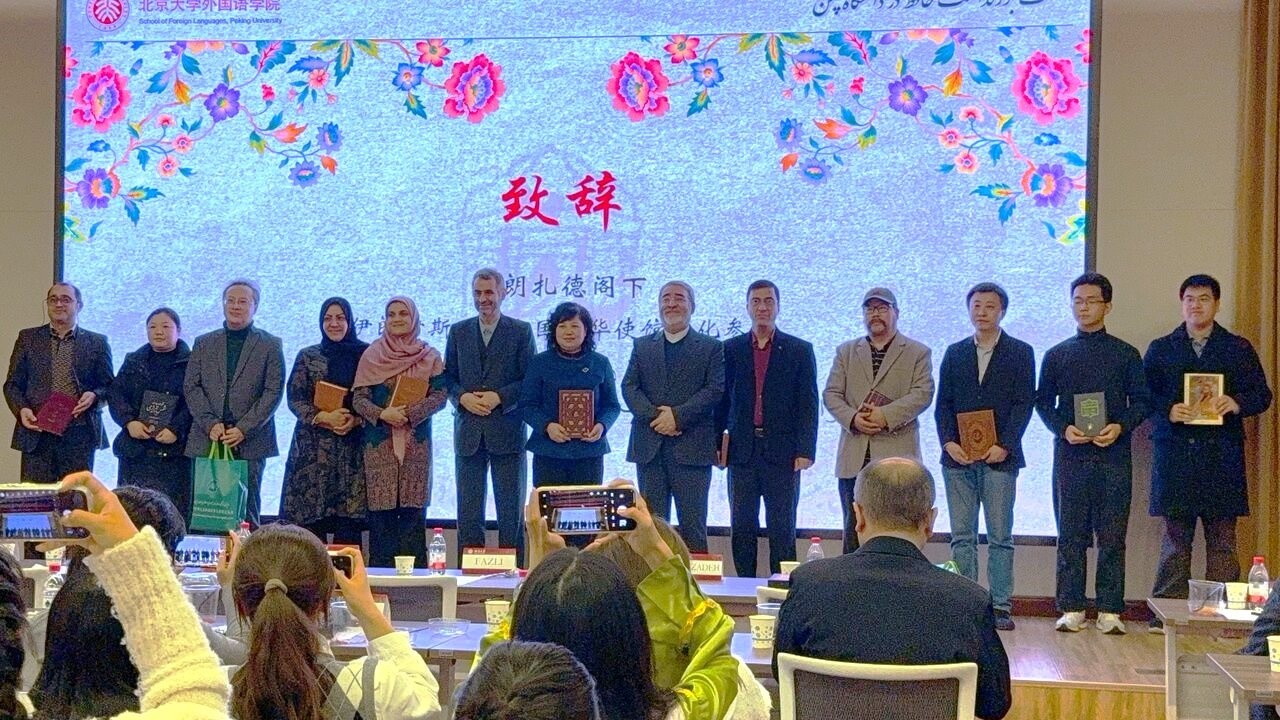The event, organized by the university’s School of Foreign Languages on Friday, was attended by Li Shujing, the school’s director, and Abdolreza Rahmani Fazli, Iran’s ambassador to China.
“Hafez’s poetry—marked by sincerity, philosophical depth, and romantic imagination—has not only shaped the Iranian spirit but also touched hearts across the world,” Li said in her address. “China and Iran, as two ancient civilizations, have long shared poetry, emotion, truth, and wisdom. Honoring Hafez here is both a tribute to a literary genius and a symbol of dialogue between two timeless cultures.”
Ambassador Rahmani Fazli highlighted the historical depth of cultural exchange between Tehran and Beijing, noting that Persian language and literature are currently taught at 14 universities in China. He said Peking University’s Persian studies program, now approaching its 70th anniversary, remains “a source of pride and a testament to the enduring cultural connection between the two nations.”
Peking University—one of China’s oldest centers for Persian studies—has played a leading role in introducing Persian literature to Chinese academia through its annual series of cultural and literary events.
During the ceremony, professors from several Chinese universities discussed the current landscape of Hafez scholarship in China, while students presented research and readings that explored the poet’s life, themes, and influence.
The event concluded with Ambassador Rahmani Fazli presenting a selection of Persian poetry anthologies to participating professors and students.
Chinese engagement with Hafez dates back to the early 20th century, when scholars in Beijing and Shanghai first encountered his work through Russian and English translations, regarding him as a figure of Eastern wisdom akin to Confucius and Laozi. By the 1980s, Hafez’s Divan had become part of the Persian literature curriculum in universities across Beijing, Shanghai, Tianjin, Xi’an, and Guangzhou, where students often recite his verses in the original Persian.
In recent decades, Hafez has come to symbolize the literary and spiritual affinity between Iran and China, with Chinese scholars frequently drawing parallels between him and classical poets Li Bai and Du Fu.


Your Comment